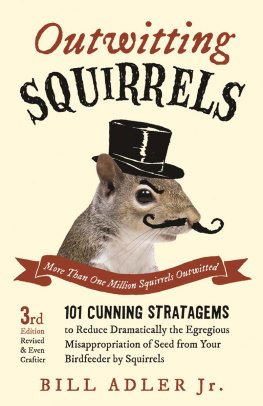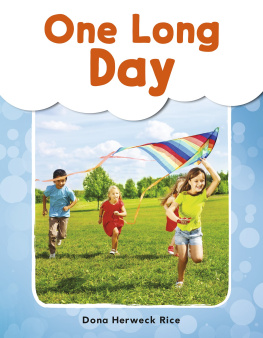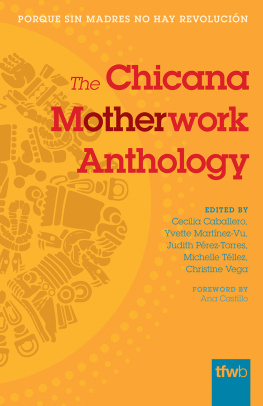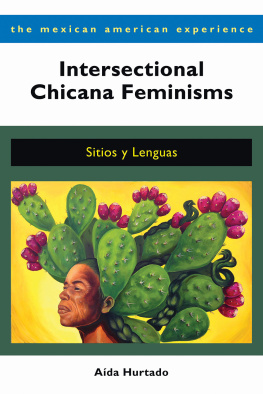G ROWING UP IS ONE OF THE UNIVERSAL THEMES IN LITERATURE. IT is during the childhood years that our values are formed by family and community. It is also a time when we acquire many of the basic skills we will use later in life. For the child or the teenager, growing up is a series of new experiences, emotions, relationships, and the awareness of sexuality. Everything about growing up is more intense and heartfelt.
Writers often need to describe the world of their childhood. We believe that by writing about growing up we can give meaning to those tumultuous years. That is how I felt when I wrote my first novel, Bless Me, Ultima . It was important to capture in a story the swirl of emotions and experiences that shaped my growing-up years.
Our growing-up stories provide a history of our past, and in so doing they illuminate the present. The Adventures of Huckle-berry Finn and Tom Sawyer are classics not only because of the wonderful characters but because they provide a history of the times and thus inform us of the world of the author.
It is important for each generation to read the growing-up stories of previous generations, and thus acquire the touchstone by which to chart a course for the future. Each one of us remembers the stories, written or in the oral tradition, that affected us as children. Those stories fired our imagination, filled us with wonder, and allowed us to understand our place in the world. Those stories also taught us that each one of us is a storyteller, each one of us is a creative human being.
The act of storytelling is very important in the Chicano community. Listening to or reading stories leads one to become a storyteller, and in writing a story one can re-create ones life. For the more than eighteen million Mexican Americans living in the United States, the growing-up years have been a mixture of joy, frustration, pain, and a search for identity. Our history, language, literature, and the Chicano Movement of the 1960s are important elements that make us a distinct community.
It was during the Chicano Movement of the 1960s that many Mexican Americans decided to call themselves Chicanos. By naming themselves they took on a new awareness of their place in society. Chicanos began to take pride in their mestizo heritage, pride in both their European and Indian history. It became important during those years to preserve the Spanish language and many of the traditions that were being lost as the force of assimilation led more and more into the mainstream culture.
During the sixties and seventies the Chicano community struggled for more civil rights and equality. We looked back on our history and reminded the world that our European ancestors had been in the southwest United States since 1540 when Coronado marched into what is now New Mexico. During those important explorations the language of commerce and education in the region became Spanish. Spanish has been spoken in the area of the present-day United States since long before James-town, the first permanent English settlement, was founded in 1607.
From Texas to California, the rich mother heritage that is Mexican in origin has spawned the culture we call Chicano today. It is a Hispanic culture because of the language, and even though there are many regional differences, elements like history, language, religion, food, fiestas, and other ceremonies keep the core of the culture intact. Whether our ancestors were the first Espaoles or Mexicanos who settled the Southwest or the newly arrived immigrant from Mexico, we all are heirs to the same common history.
Unfortunately, the history we read in school has often not included or portrayed the Chicano community of the Southwest, and it has certainly not portrayed those who have sought work in the migrant streams that took them up into the Midwest and the Northwest where they, too, have founded branches of the Chicano community. The family of the Mexican Americans has grown, it has spread to many places, and yet everywhere the common elements still exist.
What is history? And why have we been left out of the history books? For me, history includes the daily life of people, and it is written in their stories, poems, songs, and corridos, and in their daily communication. Historians have often not looked at these sources, or their narrow prejudices have kept them from taking note of the important contributions Mexican Americans have made to this land.
Chicano writers and historians are setting the record straight. In these stories, which Tiffany Ana Lpez has collected, you will find a special slice of Chicano history. It is a creative history, told in the form of stories, and it deals with that special time of youth. Enjoy the stories for what they are, creative works, but keep in mind they also allow you a view into the Chicano world.
We know from the stories we read in school, from newspapers, magazines, television, radio, and even from the advertising media, what it means to grow up in white America. For many Chicanos in this country, those experiences of growing up were a fantasy. They did not speak directly to our experience.
It is fair to say that as long as our literature was not available to white America, this country did not really know the life of the Chicano community. A book like this helps open a window to a part of the life of Chicanos. You may be surprised to learn that the same issues that concern the Chicano writers concern all readers. The stories are about growing up, encountering love, school life, life in the barrio, making friends.
You will also find more attention given to the family; la familia and all the relationships involved therein are very important in Chicano literature. The relationship with the elders in a family provides a valuable learning context for our younger generation. The elders are the roots of our cultural ways. You will find important attention given to the theme of identity. We know who we are and we know our history, but belonging to an ethnic group within the confines of the wider society makes it necessary for us constantly to affirm this identity. This push and pull between the world of our own culture and the larger Anglo American world provides our literature with important subject matter.
How we relate to each other in this multicultural society is a theme in the stories. Having lived the role of a minority ethnic group within the society, Chicano writers have important things to say about the experience. So you may find more attention given to racial or ethnic prejudices and bigotry and how it affects people.
The voice of the woman writer in these stories should draw special attention. Chicano culture is patriarchal in orientation, and as more and more Chicanas write they influence not only the content of the literature but also the culture itself. If literature is a liberating experience, then the voice of the Chicana writer in our culture is one of the most influential in helping to shape and change the cultural ways.
Language, like history, is at the heart of these stories. For Chicanos, one community within the larger Spanish-speaking world of the Americas, Spanish is the mother tongue. Our ancestors spoke Spanish, and so the language became the unifying element of our culture. Today, many of the young people are not keeping up the practice of speaking Spanish, and yet they are still historically connected to the language.












